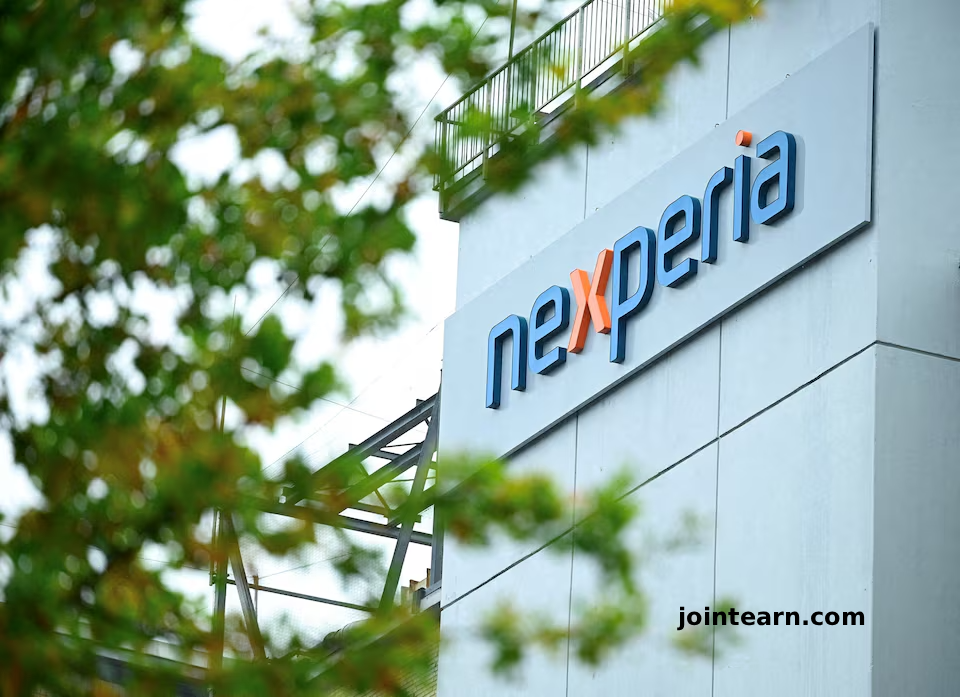
Nexperia Resumes Chip Deliveries Amid Global Supply Chain Concerns
Semiconductor manufacturer Nexperia has resumed some of its crucial chip shipments, providing a much-needed reprieve for the global auto industry. German officials have welcomed the move as a sign of de-escalation in the dispute surrounding the company’s ownership and European production operations.
Nexperia, a Chinese-owned but Netherlands-based chipmaker, produces billions of simple yet vital chips used in automobiles and a wide range of electronics. The company’s supply chain has been under intense strain since the Dutch government intervened, citing concerns that Nexperia’s Chinese parent, Wingtech, might relocate European production to China.
Germany and European Car Industry React
A spokesperson from Germany’s economy ministry described the latest developments as “very welcome,” noting that the resumption of negotiations between the Netherlands and China could allow short-term individual permits to flow quickly to the automotive sector. Germany, home to Europe’s largest car industry, had been closely monitoring the situation, as any prolonged disruption threatened to halt production across multiple manufacturers.
Chancellor Friedrich Merz added that there were positive signals indicating that chip deliveries could restart “possibly within the next few hours”, offering hope to automakers grappling with tight supply chains.
Background: Dutch Government Seizes Control of Nexperia
The Dutch government took control of Nexperia on September 30, 2025, after concerns emerged that Wingtech intended to move European operations to China, potentially endangering regional economic security. In response, China initially halted exports of the company’s finished chips, which are predominantly packaged in China.
Following discussions between U.S. President Donald Trump and Chinese President Xi Jinping, China announced it would begin accepting applications for export exemptions, easing tensions in the semiconductor supply chain.
Automotive Suppliers Begin Receiving Shipments
Several major automotive suppliers have already reported movement in chip deliveries:
- Aumovio, a German automotive supplier, confirmed that it received Nexperia chips from China after securing an exemption.
- Volkswagen reported that its first shipments of chips in China had arrived, marking a partial recovery for the European carmaker’s supply chain.
- Honda indicated that shipments had started in China, though the company cautioned that full resumption of production at affected sites may take until late next week.
Ralf Brandstaetter, Volkswagen’s board member for China, said:
“After the agreement with the United States, the Chinese Ministry of Commerce reacted quickly and announced that it would grant short-term special permits. How sustainably this system will function depends largely on the U.S.-China relationship.”
Nexperia and Wingtech Response
Nexperia has not yet fully confirmed that chip supplies have resumed, but the company indicated optimism that product flow could restart soon due to the new Chinese exemptions. Wingtech declined to comment on the situation.
Automotive suppliers have been preparing for potential production disruptions, including furloughs at plants, while simultaneously applying for exemptions to maintain continuity. The situation highlights the fragility of global semiconductor supply chains and their critical role in the automotive industry.
Potential Impact on European and Global Auto Production
European carmakers, including Volkswagen, cautiously maintained their 2025 production forecasts, even as chip shortages continue to loom over supplier networks. Any extended disruption could affect not only car production but also the broader electronics sector reliant on Nexperia’s semiconductors.
This development underscores the broader geopolitical dynamics affecting semiconductor manufacturing, including trade tensions between China, the U.S., and European nations. The recent resumption of shipments provides short-term relief, but the industry remains vigilant for potential supply interruptions.


Leave a Reply